
Polish authorities have agreed with farmers on subsidies per ton of grain and temporary closure of the border with Ukraine from April 1 for the transit of some agricultural products, polskieradio24.pl reported.
According to the newspaper, the document was signed by representatives of the protesting farmers, Agriculture Minister Czeslaw Seckerski and the ministry’s state secretary Michal Kolodziejczak.
The agreement envisages maintaining the current embargo on agricultural products from Ukraine, which has been in place since mid-September last year. It concerns in particular wheat, corn, wheat flour, rapeseed and sunflower.
In addition, the Minister of Agriculture must ask the Council of Ministers of the European Union to suspend the transit of these products through Polish territory as of April 1 this year.
Both sides in the signed document also consider it necessary to develop detailed rules for agri-food trade between Poland and Ukraine, but also note that the difficult situation in agriculture is the result of Russia’s aggression against Ukraine.
Farmers’ representatives in the agreement declare their government’s support for the changes to the Green Agreement. It is primarily about replacing the mandatory transfer to a voluntary ecosystem and simplifying other rules for farmers.
AUTHORITIES, BORDER, FARMERS, GRAIN, POLAND, transit products, UKRAINE
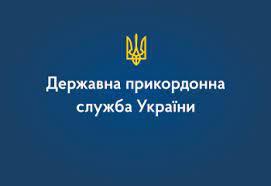
Polish protesters plan to resume blocking trucks in the direction of the checkpoint “Korchova-Krakovec” from March 13, the State Border Guard Service of Ukraine (SBGS) reports. “On March 13, protesters plan to resume blocking trucks in the direction of the checkpoint “Korchova-Krakovets”,” the State Border Service said in a message in the Telegram channel on Monday.
The message also states that from today from “9.00 protesters will not let trucks through the checkpoint “Ugrinov” in the direction of Poland. At the exit from Poland will be allowed 4 trucks every hour”. Earlier this was reported by the speaker of the state Border service Andrey Demchenko on the air of the national telethon.
“In the direction of checkpoints “Dorogusk-Yagodin”, “Zosin-Ustilug”, “Dolgobichiv-Ugrinov”, “Hrebene – Rava-Russkaya”, “Medica-Shegini” restriction of movement for cargo vehicles continues”, – noted in the message of the state Border service.
“The movement of passenger vehicles and buses in all directions is not limited”, – stated in the message.
As reported with reference to Demchenko, on the night of March 8-9 Polish farmers stopped blocking the direction through the checkpoint “Korchova-Krakovets”, and on it since then significantly increased the load, there also formed queues. “Over these last days we see the intensity of traffic exactly at this checkpoint… That is, the intensity there is quite high with the possibility of crossing the border in both directions. But, of course, and in this direction the queue remains: as of this morning it is about 600 trucks,” – said Demchenko.
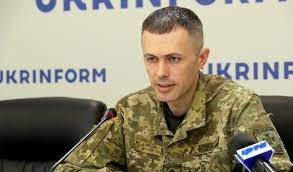
Polish border guards have passed information to the Ukrainian side that Polish farmers plan to temporarily stop blocking traffic at the checkpoint “Krakivets” until March 13, said the speaker of the State Border Guard Service of Ukraine Andriy Demchenko.
“But whether it will be observed, whether before the 13th actually unblock the direction of the checkpoint “Krakovets” – we will see,” – said Demchenko on air telethon.
He pointed out that as of the morning of March 9, 2300 trucks are in queues at the border in all directions. The most difficult situation, according to Demchenko, opposite the checkpoint “Yagodin” and “Shegini”.
“In fact, there farmers do not let trucks traveling towards Poland through at all,” Demchenko noted.
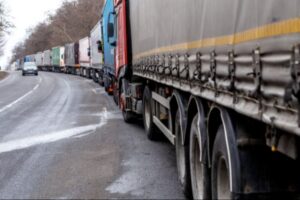
In Romania, farmers are blocking truck traffic to Ukraine at the Siret checkpoint, the reason and duration of the blockade are unknown, the State Border Guard Service of Ukraine reports.
“Truck traffic through the Romanian checkpoint Siret, opposite the Ukrainian checkpoint Porubne, is blocked! Farmers in Romania are blocking truck traffic through the Siret checkpoint. The reasons and estimated duration of the blockade are unknown. Traffic may be hampered in both directions,” the message posted on the telegram channel on Saturday reads.
The State Border Guard Service notes that no significant queue of trucks heading towards Ukraine has been recorded so far. There are 825 vehicles registered in the E-queue for departure.
At the same time, cars, passenger buses and pedestrians are allowed to cross as usual.
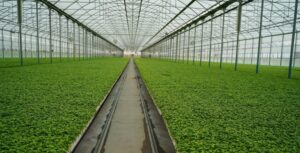
Financial assistance in the amount of UAH 100.858 million will be provided to 25 agricultural enterprises in Kyiv region as part of the government’s e-Work program to support small and medium-sized businesses, Deputy Minister of Agrarian Policy and Food Denys Bashlyk said on Facebook.
According to him, the funds will be used to develop horticulture, berry growing, viticulture, and greenhouse farming. Thus, farmers will receive grants worth UAH 80.858 million for the development of horticulture and UAH 20 million for greenhouses. So far, UAH 74.401 million has been paid to them.
In addition, since the beginning of the year, 902 farmers in the Kyiv region have received UAH 10.402 billion in bank loans for farm development, the deputy minister stated.
As reported, since the beginning of the year, 12.3 thousand agricultural enterprises have received UAH 65.2 billion in bank loans for development. Of these, 9.6 thousand agricultural enterprises received UAH 37.5 billion in loans under the state program “Affordable Loans 5-7-9”.
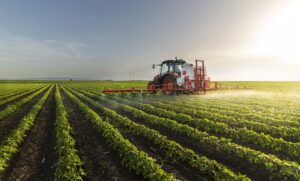
Farmers with more than 1,500 hectares of winter crops can insure their crops against war risks with a limit of indemnity from UAH 500 thousand to UAH 2 million in INGO Insurance Company until December 15, the company said in a statement.
“In the world practice, war risks are always included in the list of standard exclusions, and losses are not compensated,” the press release quotes INGO’s Director of Corporate Insurance Serhiy Krivosheev as saying. – “However, now in Ukraine we are ready to revise the rules to create more opportunities for farmers. We understand that not only the economic condition of the agricultural sector, but also many others depend on their success.”
Thus, INGO Insurance Company has expanded its standard winter crops insurance program, which provides protection against negative weather factors (extremely low temperature, ice crust, damping, drought, etc.), to include coverage of crop damage risks resulting from events that were a direct or indirect consequence of military operations.
The company assumes that this will “help agricultural enterprises maintain financial stability.”
It is noted that only winter crops of more than 1500 hectares, which are grown industrially and are located in the unoccupied territory or no closer than 50 km from the combat zone or the state border with Belarus and Russia, can be insured against military risks.
In the event of an insured event, INGO will compensate for the costs of sowing and growing crops damaged or destroyed as a result of military operations, including maneuvers, movement of equipment, construction of defensive structures, and demining costs.
“The company assumes reimbursement of such costs depending on the volume of insured crops with a limit of UAH 500 to 2 million,” the statement said.
According to it, the settlement of insured events for further compensation is carried out according to the standard procedure within 15 days from the date of submission of the necessary documents. A document confirming the fact of occurrence of such an event under military risks should be obtained from the military-civilian administration, the State Emergency Service or the National Police.
INGO Insurance Company has 30 years of experience in the market. Since 2017, the company’s main shareholder has been the Ukrainian business group DCH of Alexander Yaroslavsky.
The company holds 29 licenses for various types of compulsory and voluntary insurance, provides insurance services to corporate and retail clients, and is a full member of the Motor (Transport) Insurance Bureau of Ukraine (MTIBU).
According to the National Bank, as of the middle of this year, INGO Insurance Company was the eighth largest in the market in terms of assets (UAH 3.28 billion). Its net earned insurance premiums for the first half of the year amounted to UAH 971.4 million, insurance payments and reimbursements – UAH 545.6 million, net profit – UAH 152.0 million.